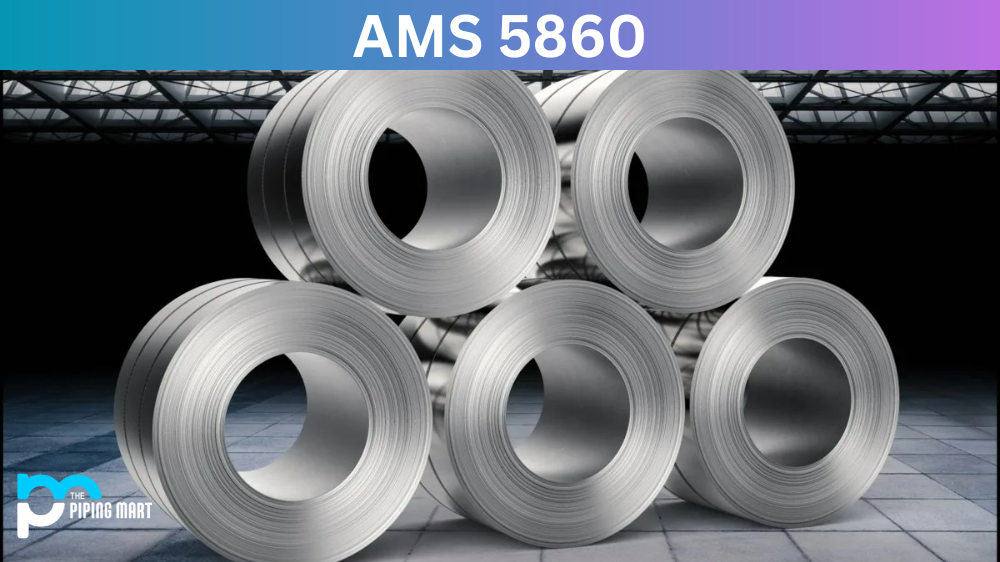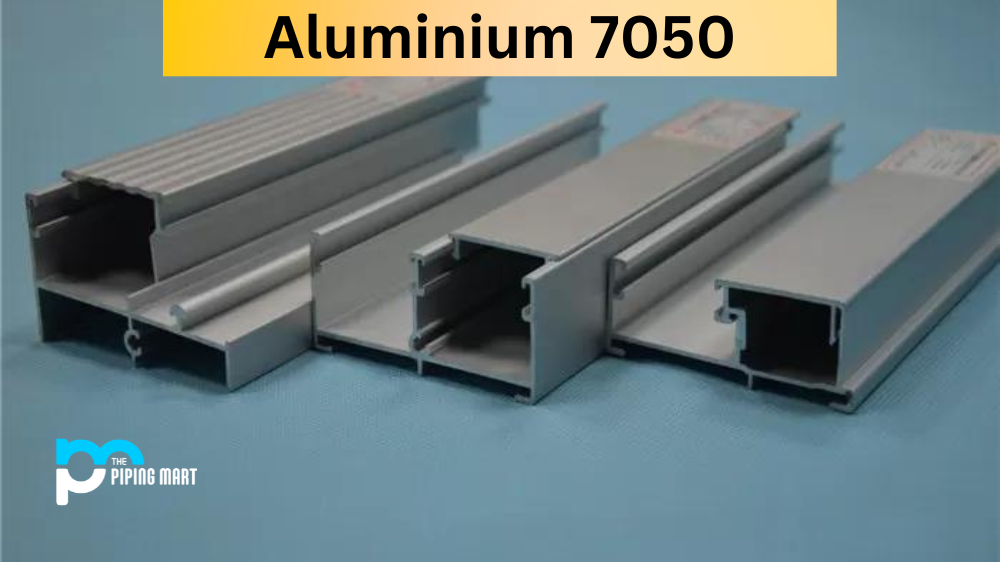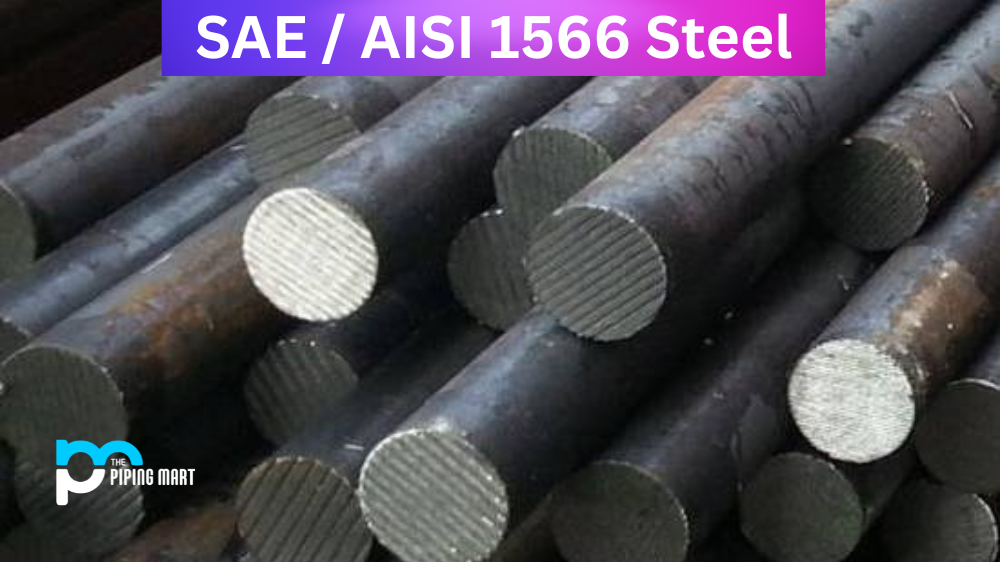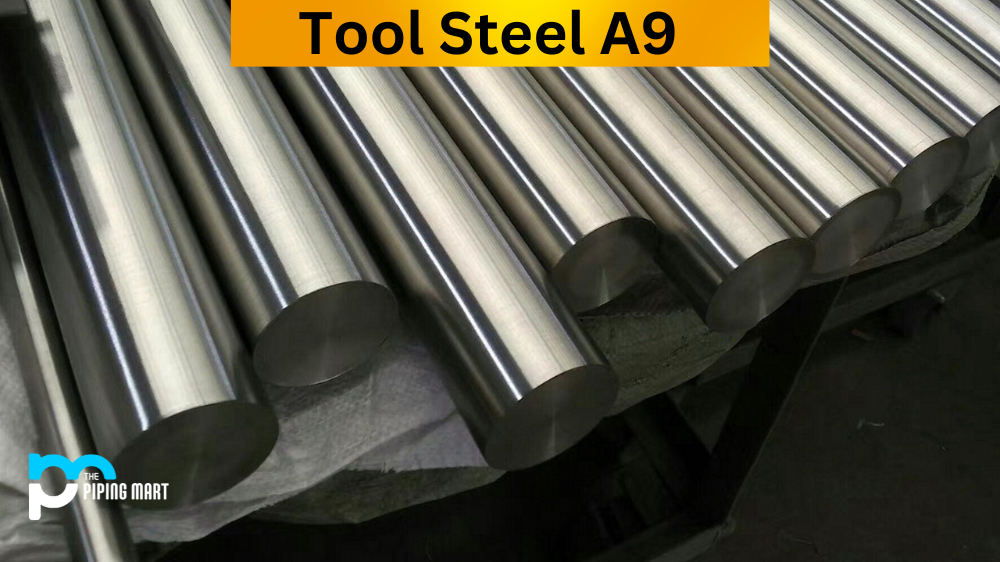When it comes to aerospace and military applications, one of the most critical components is the material used for manufacturing. The material’s strength, durability, and resistance to extreme conditions determine whether it can meet the strict requirements of these industries. AMS 5860 is a unique material that meets and surpasses these requirements. This post will delve into everything you need to know about AMS 5860, from its composition to heat treatment.
What is AMS 5860?
AMS 5860 (also known as Stainless steel 455)is a specific type of steel material that is commonly used in a wide range of industrial applications. This high-performance steel is known for its impressive strength, durability, and resistance to corrosion, making it the top choice for many engineers and manufacturers worldwide. With its superior mechanical properties and outstanding resistance to heat and wear, AMS 5860 is an ideal material for demanding applications that require exceptional performance and reliability. Whether in the aerospace, automotive, or energy sector, AMS5860 is an essential component that plays a critical role in the success of many businesses and industries.
AMS 5860 Composition
AMS 5860 sheet is a high-temperature alloy that contains significant amounts of Nickel, Chromium, and Molybdenum. Other constituents include Tungsten, Cobalt, and Vanadium. This alloy is highly resistant to corrosion and oxidation, making it suitable for harsh environments. Additionally, its unique composition gives it outstanding mechanical properties, including excellent strength and toughness.
| Element | Content (%) |
|---|---|
| Chromium, Cr | 11-12.5 |
| Nickel, Ni | 7.5-9.5 |
| Copper, Cu | 1.5-2.5 |
| Titanium, Ti | 0.80-1.4 |
| Molybdenum, Mo | 0.50 max |
| Manganese, Mn | 0.50 max |
| Silicon, Si | 0.50 max |
| Columbium, Cb + Tantalum, Ta | 0.10-0.50 |
| Carbon, C | 0.05 max |
| Phosphorus, P | 0.040 max |
| Sulfur, S | 0.030 max |
| Iron, Fe | Balance |
AMS 5860 Physical Properties
AMS 5860 has a density of 8.18 g/cm3 and a melting point of 1427°C. It exhibits low magnetic permeability, and its thermal expansion coefficient is similar to steel. This material is also known for its excellent thermal stability, allowing it to withstand high temperatures without significant deformations.
| Properties | Metric | Imperial |
|---|---|---|
| Density | 7.76 g/cm3 | 0.280 lb/in3 |
AMS 5860 Mechanical Properties
AMS5860 has a high yield and ultimate tensile strength, making it an ideal material for high-stress applications. Its modulus of elasticity is relatively high and has excellent impact strength. Moreover, this material is easily machinable in the annealed state, allowing for the precise manufacturing of complex components.
| Properties | Metric | Imperial |
|---|---|---|
| Tensile strength | 1413 MPa | 204900 psi |
| Yield strength | 1345 MPa | 195100 psi |
| Modulus of elasticity | 200 GPa | 29000 ksi |
| Poisson’s ratio | 0.3 | 0.3 |
| Elongation at break | 14% | 14% |
| Hardness, Brinell | 411 | 411 |
| Hardness, Knoop (estimated from Rockwell C) | 450 | 450 |
| Hardness, Vickers (estimated from Rockwell C) | 430 | 430 |
| Hardness, Rockwell C | 44 | 44 |
AMS 5860 Equivalent
- MIL-S-83311
- AMS 5617 Gr 1 Bar
- AMS 5617 Gr 2 Bar
- HMS 6 1093 Rev G
- AMS 5578 Welded tube
- ASTM A693 Grade XM16
- ASTM A564 / ASME SB564
- AMS 5860 Sheet / strip / plate
AMS 5860 Uses
AMS strip 5860 is commonly used in the aerospace and military industries. It is used to manufacture jet engine components, gas turbine engine parts, and exhaust systems. It is also utilized in firearm manufacturing due to its high hardness and excellent resistance to wear and tear. Some applications in chemical processing, such as valve bodies and downhole tooling, also require AMS 5860.
AMS 5860 Hardness
AMS 5860’s hardness is typically above 200 HB. This hardness level is essential in applications where resistance to wear and tear is vital, such as firearm manufacturing. Its hardness makes it resistant to deformation, making it a reliable material for high-stress applications.
AMS 5860 Heat Treatment
Heat treatment of AMS 5860 alloy involves solution annealing, followed by water or air quenching. This process is necessary to achieve the desired strength and mechanical properties. The solution annealing process involves heating the material to 1150°C for a specified duration, followed by rapid cooling. This process eradicates any residual stresses that may be present in the alloy.
AMS 5860 Density
Density is a key concept in the science of materials engineering. AMS 5860 is a specific method for measuring the density of various metals and alloys. A proper understanding of density is critical in designing and constructing a wide variety of structures, from buildings and bridges to airplanes and satellites. To produce high-quality materials that can withstand stress and pressure, manufacturers must be able to accurately measure density and ensure that it meets certain standards. The use of AMS 5860 is instrumental in ensuring that this crucial step is carried out with precision, providing engineers and technicians with the data they need to create durable and reliable products that can withstand the test of time.
Conclusion:
AMS 5860 is a unique high-temperature alloy with excellent mechanical properties, making it suitable for harsh environments. Its high strength, hardness, and resistance to wear and tear make it ideal for aerospace, military, and firearm applications. Understanding its composition, physical and mechanical properties, and heat treatment is essential to ensure the proper application of this material.

Abhishek is a seasoned blogger and industry expert, sharing his insights and knowledge on various topics. With his research, Abhishek offers valuable insights and tips for professionals and enthusiasts. Follow him for expert advice on the latest trends and developments in the metal industry.




